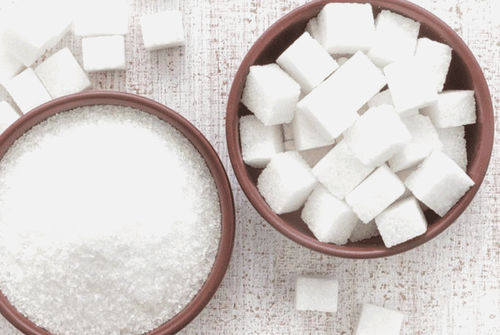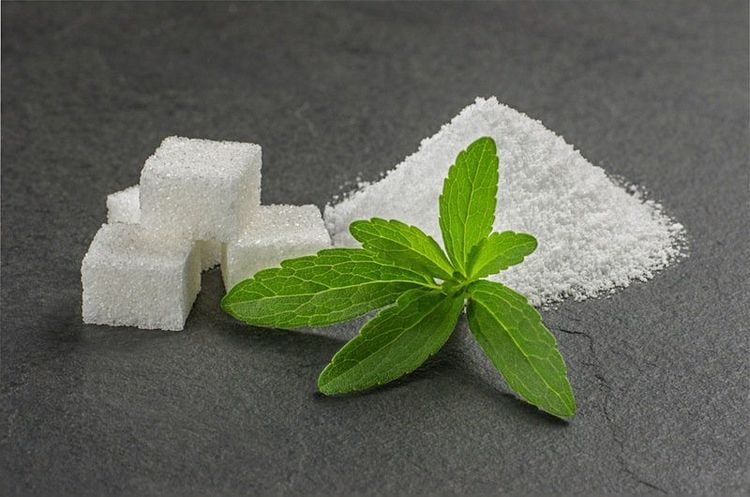Refined and natural sugars are components to consider in the treatment plan for irritable bowel syndrome (IBS). While not all types of sugar cause IBS symptoms, eliminating certain types can help better manage the condition.
Irritable bowel syndrome affects about 12 percent of the U.S. population and is a digestive disorder that can cause various symptoms. These may include abdominal pain, cramping, and bloating, as well as bowel issues such as diarrhea and constipation. Due to the complexity of irritable bowel syndrome, no single cause is known. Instead, it is important to focus on what triggers symptoms, including your diet.
1. Why do sugars cause irritable bowel syndrome symptoms?
When consuming sugar, the small intestine releases certain enzymes to help digest it. The molecules are then absorbed through the intestinal wall into the bloodstream, which can be used for energy.
It is believed that a lack of necessary enzymes to digest sugar can trigger symptoms of irritable bowel syndrome. Hormones, changes in gut bacteria, and stress also play a role in activating symptoms.
Not everyone with irritable bowel syndrome will be sensitive to sugars in the same way. Early identification of triggers can help alleviate your symptoms.
2. Which sugars cause symptoms of irritable bowel syndrome?
Sugars are available in various forms, both commercially produced and natural. Here are three main types of sugar that may potentially cause issues with irritable bowel syndrome.
2.1 Sucrose
Commonly known as table sugar, sucrose is perhaps the most widely used sugar in foods. It is derived from sugarcane or sugar beet. Although classified as a single type of sugar, technically, sucrose is formed from a combination of two sugar molecules: fructose and glucose. You can buy sucrose for baking or adding to your coffee, and many packaged baked goods and ready-made meals contain sucrose. While widely used, sucrose may be particularly harmful to certain health conditions, like irritable bowel syndrome.

2.2 Fructose
Fructose can also pose problems if you have irritable bowel syndrome. Fructose sugars can be found in fruit juices, soft drinks, and packaged sweets.
However, even natural forms of fructose in fruits can be problematic. This is especially true for fruits high in fructose, such as apples, grapes, and pears, as well as honey.
That said, you don't need to avoid fruit altogether. Instead, swap out high-fructose fruits for those known to have lower fructose content. Berries, peaches, watermelon, and citrus fruits are less likely to trigger irritable bowel syndrome symptoms.
2.3 Lactose
Some people with irritable bowel syndrome are also sensitive to lactose, a natural sugar found in milk. Your body breaks down milk with the help of lactase enzymes in the small intestine, similar to the sucrase enzymes needed to break down sucrose.
Not everyone with irritable bowel syndrome is lactose intolerant, but foods containing lactose are a common trigger for many. You may consider avoiding milk as well as other dairy products, including cheese, yogurt, and cream.
3. What can replace sugar?
Sorbitol and xylitol are two common sugar substitutes that are associated with abdominal cramps and diarrhea for those with irritable bowel syndrome. These sugar substitutes are found in sugar-free desserts, candies, and chewing gum.
One exception may be stevia. This popular sweetener is said to be 200 times sweeter than table sugar while containing no calories.
Stevia may be safe for irritable bowel syndrome, but it is important to read product labels carefully. Pure stevia is safe, while other additives, such as erythritol, may worsen your symptoms.
You should also approach "natural" sweeteners cautiously if you have a history of irritable bowel syndrome symptoms triggered by sugar. For example, honey and agave syrup can also cause issues.

4. What other foods should be avoided if you have irritable bowel syndrome?
Besides sugars and sweeteners, other foods that may trigger irritable bowel syndrome symptoms include:
- Beans, legumes, and lentils
- Cruciferous vegetables, including broccoli, cabbage, and cauliflower
- Onions and garlic
- Gluten
- Chocolate
- Spicy foods
- Fried and processed foods
- Foods and beverages containing caffeine
You might try cutting these foods and beverages from your diet to see if your symptoms improve. However, remember that each person with IBS is different, and restricting certain foods may not be necessary.
It is advisable to work with a knowledgeable healthcare professional, such as a doctor or registered dietitian, if you want to try a diet to improve your IBS symptoms.
To process sucrose, your small intestine secretes sucrase enzymes. Some people have a genetic condition known as congenital sucrase-isomaltase deficiency (CSID), also referred to as sucrose intolerance.
Individuals with this condition have lower levels of the enzymes that break down sucrose and also struggle to digest lactose, a natural sugar found in grains.
When sucrose or maltose passes through the small intestine undigested, it can cause symptoms similar to irritable bowel syndrome, including bloating, diarrhea, and gas. These symptoms often occur shortly after consuming foods containing sucrose or maltose. Unlike IBS, CSID can be severe enough to impede a person's growth and development. Although considered rare, CSID is often identified in childhood, where children experience malnutrition and growth-related symptoms.
Many types of foods can trigger IBS symptoms, and sugar is just one of them. Negative reactions to sugar can occur due to a lack of enzymes in the digestive system, but they can also be related to stress, changes in gut bacteria, and hormonal imbalances.
Speaking with a doctor can help identify food triggers and how your overall diet may play a role in managing irritable bowel syndrome.
Currently, Vinmec International General Hospital is one of the leading hospitals that ensures quality expertise with a team of doctors and modern technological equipment. The hospital provides comprehensive examination, consultation, and treatment services conducted by highly experienced specialist doctors. Patients who choose to undergo tests here can be assured of the accuracy of their test results.
References \
Grembecka M. (2015). Natural sweeteners in a human diet.
ncbi.nlm.nih.gov/pubmed/26400114
Hayes PA, et al. (2014). Irritable bowel syndrome: The role of food in pathogenesis and management.
ncbi.nlm.nih.gov/pmc/articles/PMC4014048/
Irritable bowel syndrome diet. (2017).
aboutibs.org/ibs-diet.html%C2%A0
Irritable bowel syndrome (n.d.).
niddk.nih.gov/health-information/digestive-diseases/irritable-bowel-syndrome
Is sugar triggering your Irritable Bowel Syndrome ? (n.d.).
badgut.org/information-centre/a-z-digestive-topics/is-sugar-triggering-your-ibs/
What are the symptoms of sucrose intolerance? (n.d.).
sucroseintolerance.com/?gclid=EAIaIQobChMI7anZtor95wIVhf5kCh0yWgSREAMYASAAEgJ3P_D_BwE
To arrange an appointment, please call HOTLINE or make your reservation directly HERE. You may also download the MyVinmec app to schedule appointments faster and manage your reservations more conveniently.


